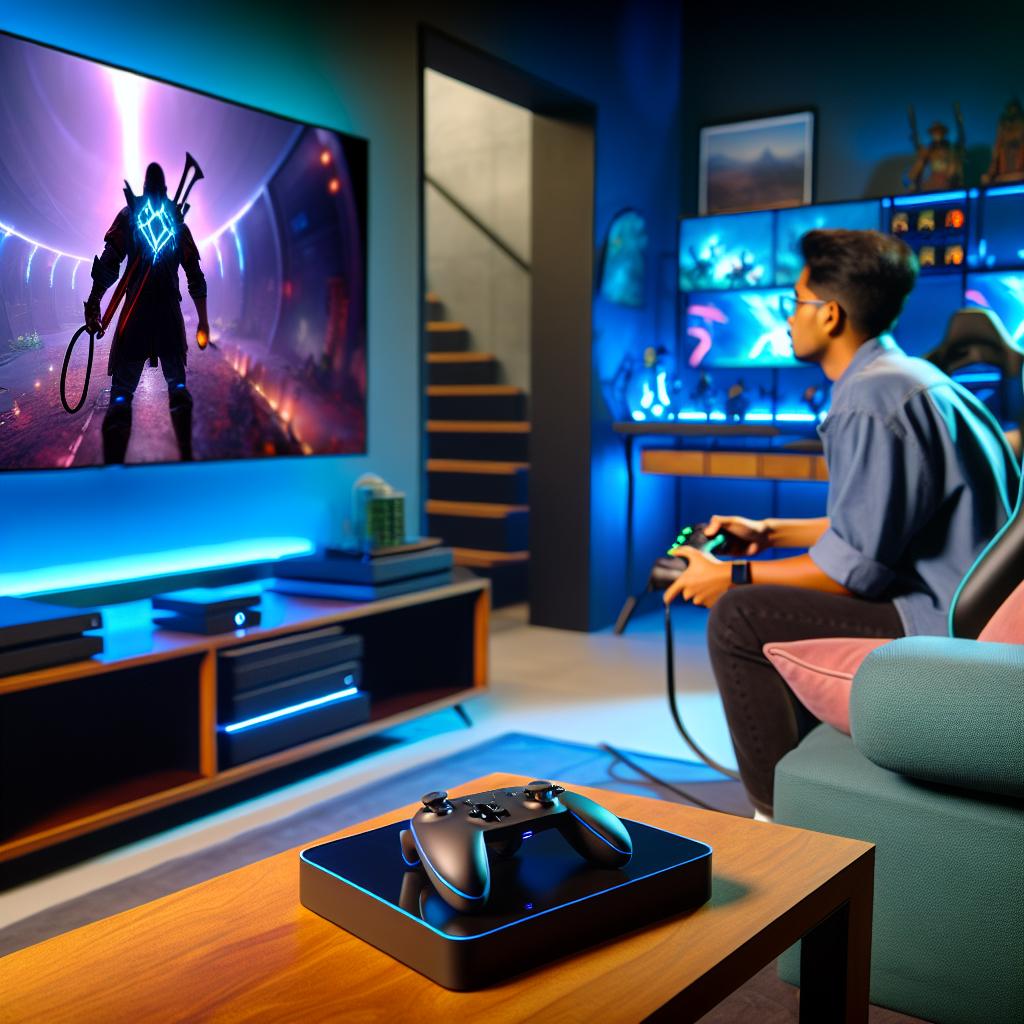Introduction
Smart TVs have become a vital component in modern gaming setups, offering gamers an array of features and high-quality visual output that markedly improve the overall gaming experience. As the gaming industry continues to grow and evolve, these TVs have adapted to meet the demanding requirements of both casual and competitive gamers. In a market flooded with numerous options, selecting the most suitable Smart TV for gaming can be a daunting task. This article endeavors to simplify this process by detailing the key features to consider when purchasing a gaming TV and highlighting some of the top Smart TVs currently available that are specifically optimized for gaming.
Essential Features for Gaming
When choosing a Smart TV for gaming, several features stand out as essential for ensuring optimal gaming performance. Without these features, the gaming experience might fall short of expectations.
Resolution and Refresh Rate: One of the primary considerations is the TV’s resolution and refresh rate. Modern gaming consoles and computers often output content in 4K resolution, and to fully appreciate this high-definition content, a 4K TV is recommended. Moreover, a refresh rate of at least 120Hz is crucial for smooth motion graphics. This combination of high resolution and fast refresh rate aids in delivering sharp images and seamless motion, both of which are critical for an immersive gaming experience.
Latency and Input Lag: Another critical factor is the TV’s latency and input lag. In gaming terms, latency refers to the delay between the input (such as pressing a button on the controller) and the corresponding action occurring on the screen. TVs with low latency and minimal input lag provide a more responsive gameplay experience. Features like Auto Low Latency Mode (ALLM) are beneficial as they automatically switch the TV to the lowest latency setting, making them ideal for reactive and competitive gaming.
HDMI 2.1 Support: The availability of HDMI 2.1 ports is also essential, especially for next-generation consoles like the PlayStation 5 and Xbox Series X. HDMI 2.1 supports higher bandwidth connections and offers advanced gaming features such as Variable Refresh Rate (VRR) and frame rates beyond the traditional 60Hz. These features help minimize screen tearing and maintain smooth gameplay, even in graphically intense scenes.
HDR Support: Lastly, High Dynamic Range (HDR) is an important feature to consider. HDR enhances the color range and contrast of the display, offering more vibrant visuals and greater detail. Support for HDR10 or Dolby Vision ensures that players can experience games with richer colors and more lifelike imagery, enhancing both in-game worlds and overall graphical fidelity.
Top Smart TVs for Gaming
Here, we will take a closer look at some of the top Smart TV models designed with gaming in mind. By focusing on key models, we can provide a more detailed analysis of each.
LG OLED C2 Series
The LG OLED C2 Series is a benchmark for gaming TVs, renowned for its outstanding OLED display. With self-lighting pixels, it achieves perfect blacks and infinite contrast ratios, making it exceptional for high-quality visuals. This TV offers 4K resolution and a 120Hz refresh rate, ensuring sharp and fluid visuals. Furthermore, it supports NVIDIA G-Sync compatibility, reducing screen tearing and providing smooth, stutter-free visuals. The HDR performance on this model is equally impressive, offering support for both HDR10 and Dolby Vision formats. Gamers seeking an unmatched visual experience will find the LG OLED C2 a compelling choice.
Samsung QN90B Neo QLED
Samsung’s QN90B Neo QLED utilizes advanced display technology to deliver superior picture quality. Equipped with Mini LED backlights, it provides brighter images and more finely tuned contrast levels, suited to both dark and well-lit room settings. The TV’s responsiveness is one of its main strengths, with low input lag and rapid response times, essential for competitive gaming. HDMI 2.1 support further enhances its gaming capabilities, ensuring that it can handle next-gen console demands. Overall, the Samsung QN90B balances performance and picture quality effectively, making it an excellent option for gaming.
Sony Bravia XR A90J
The Sony Bravia XR A90J is celebrated for its ability to deliver cinematic colors and deep blacks, courtesy of its OLED panel. With support for HDMI 2.1, VRR, and ALLM, this TV is well-optimized for gaming. The additional processing capability offers improved motion clarity, capturing fast-moving images with minimal blur, which is especially beneficial for action-packed games. The audio performance is another standout feature of this model, with capabilities that enhance the gaming experience through precise sound localization and clear dialogue. For gamers seeking a TV with strong audiovisual performance, the Sony Bravia XR A90J is a worthy consideration.
Hisense U8H Series
For gamers on a budget, the Hisense U8H Series offers remarkable performance for its price point. This TV comes equipped with HDMI 2.1 support, a 120Hz panel, and respectable HDR performance, ticking many boxes essential for a solid gaming setup. Although it may not reach the high peaks of premium models in terms of overall picture quality, the Hisense U8H delivers balanced performance and features necessary for gaming. It remains a strong contender for those who wish to experience 4K gaming without incurring a premium cost.
Conclusion
Selecting a Smart TV by considering key aspects such as resolution, refresh rate, latency, and advanced gaming features can significantly enhance one’s gaming experience. The LG OLED C2 Series, Samsung QN90B Neo QLED, Sony Bravia XR A90J, and Hisense U8H Series are some of the top Smart TVs currently optimized for gaming, each bringing unique strengths to the table. By carefully evaluating these options, alongside your specific gaming needs, you can select a TV that will elevate your gaming experience to new and immersive levels.




